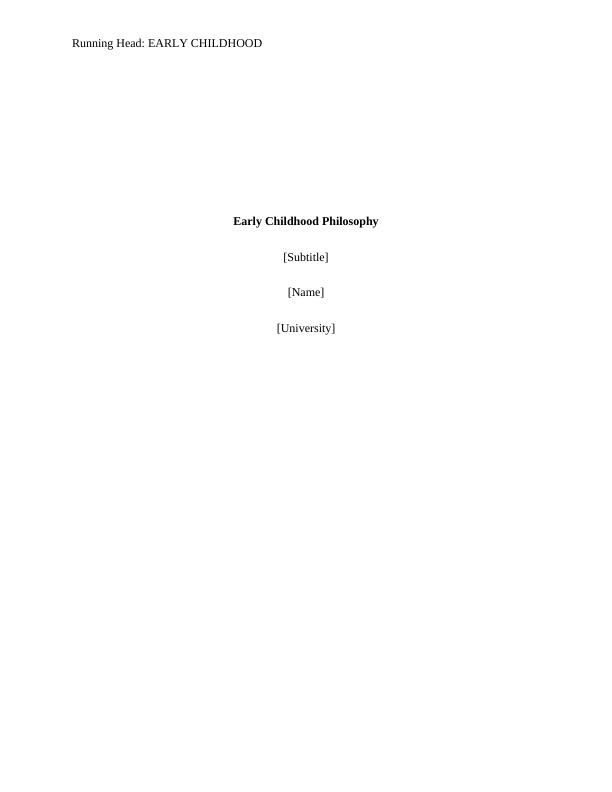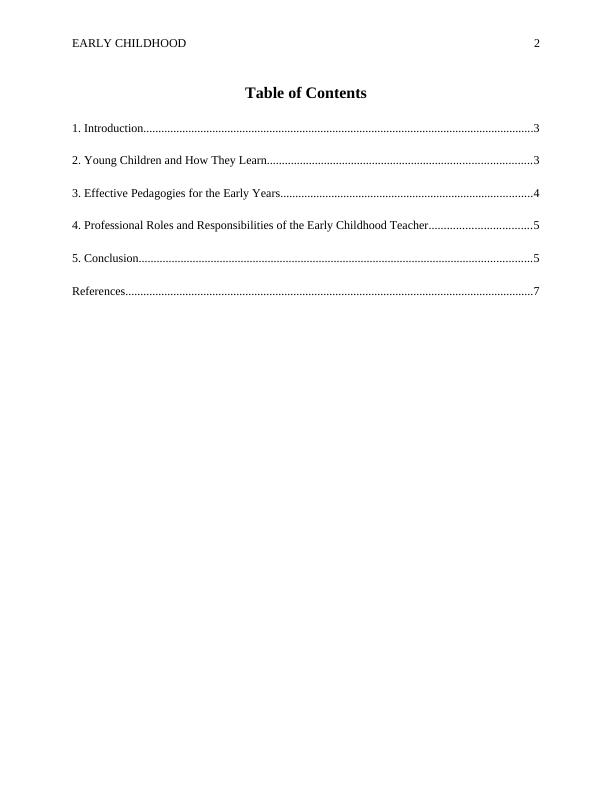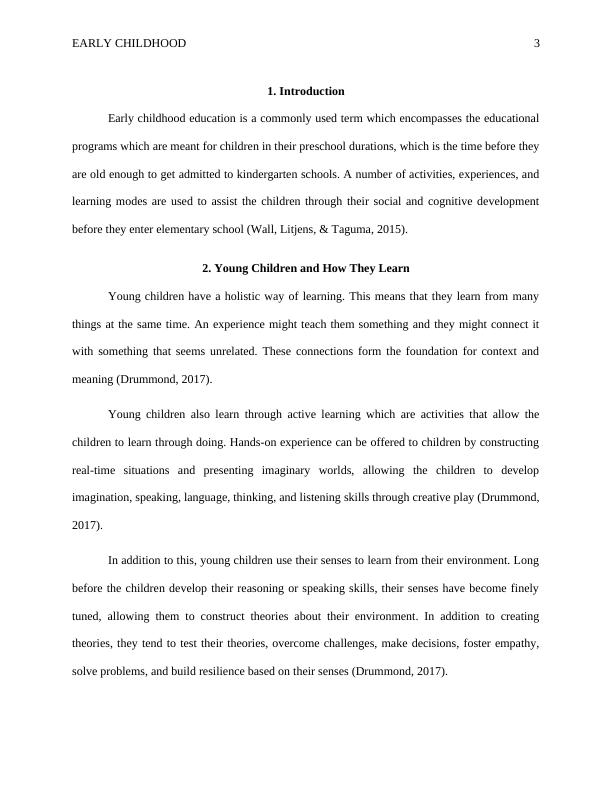Early Childhood Philosophy
7 Pages1216 Words319 Views
Added on 2023-04-21
About This Document
This document discusses the philosophy of early childhood education, including the activities, experiences, and learning modes used to assist children in their social and cognitive development. It also explores how young children learn through active learning and the use of their senses. The document further examines effective pedagogies for the early years, including the frameworks defined by educational authorities. Additionally, it discusses the professional roles and responsibilities of early childhood teachers.
Early Childhood Philosophy
Added on 2023-04-21
ShareRelated Documents
End of preview
Want to access all the pages? Upload your documents or become a member.
Australian Child Care: EYLF and National Quality Framework
|6
|1516
|337
Actions Needed to Advocate For Play Pedagogies in Early Education
|9
|2566
|59
Early Childhood Education in Australia
|11
|2483
|391
Sociocultural Perspective on Early Childhood Education
|3
|608
|25
Study Programs in Past Years Report
|12
|3396
|12
Early Childhood Education Essay 2022
|9
|2663
|20



